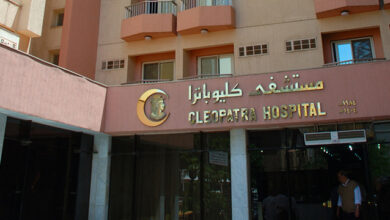Burundi Enhances Outbreak Response Strategies to Address Public Health Challenges

The Government of Burundi, in collaboration with international partners, has undertaken a comprehensive revision of its outbreak response plans to more effectively address the nation’s public health challenges. This initiative aims to bolster the country’s preparedness and response capabilities against various health threats, including the recent mpox outbreak and other communicable diseases.
Strengthening Health Systems and Surveillance
In response to the escalating mpox cases in Central Africa, particularly in Burundi, the government has prioritized enhancing disease surveillance and response mechanisms. The revised plans focus on:
- Training Health Personnel: Equipping healthcare workers with the necessary skills to detect and manage mpox cases promptly.
- Community Engagement: Implementing awareness campaigns to educate the public on preventive measures and encourage early reporting of symptoms.
- Resource Allocation: Ensuring the availability of medical supplies and personal protective equipment (PPE) to safeguard both healthcare providers and patients.
These measures are designed to mitigate the spread of mpox and provide adequate care to affected individuals, especially vulnerable groups such as women, children, and those with underlying health conditions.
Collaborative Efforts with International Organizations
The International Organization for Migration (IOM) has been instrumental in supporting Burundi’s health initiatives. Through the Crisis Response Plan 2024-2026, IOM aims to provide immediate humanitarian assistance and implement long-term resilience strategies. Key components of this collaboration include:
- Capacity Building: Training community leaders and health workers to enhance local response capabilities.
- Psychosocial Support: Offering mental health services to returnees and vulnerable host communities to address the psychological impact of displacement and health crises.
- Water, Sanitation, and Hygiene (WASH): Improving access to clean water and sanitation facilities to reduce the risk of waterborne diseases.
These efforts align with the National Development Plan 2018-2027 and the National Strategy for Disaster Risk Reduction 2018-2025, reflecting a unified approach to addressing public health emergencies.
Addressing Climate-Related Health Risks
Recognizing the impact of climate change on public health, Burundi’s revised response plans also focus on disaster risk reduction. The country has experienced increased frequency of natural hazards, such as floods and landslides, leading to significant displacement and heightened health risks. The government’s strategy includes:
- Early Warning Systems: Implementing technologies to predict and monitor climate-related events to facilitate timely evacuations and resource allocation.
- Infrastructure Resilience: Rehabilitating healthcare facilities to withstand natural disasters and ensure uninterrupted service delivery.
- Community Preparedness: Educating communities on disaster preparedness and response to enhance resilience at the grassroots level.
By integrating climate considerations into public health planning, Burundi aims to reduce the adverse effects of environmental changes on its population.
Call for International Support
The Government of Burundi acknowledges the need for sustained international collaboration to effectively implement these revised outbreak response plans. The support of global partners is crucial in providing the necessary resources, expertise, and funding to strengthen Burundi’s health systems and ensure the well-being of its citizens.






Leave feedback about this